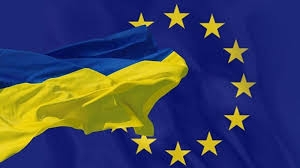The European Commission requires the Eastern EU countries to comply with trade issues and offers them financial assistance

The head of the European Commission, Ursula Von der Leyen, proposed a program to help farmers of eastern EU countries in the amount of 100 million euros in exchange for the lifting of the ban on the import of grain from Ukraine and demanded compliance with the unity of European countries in matters of trade.
In the statement of the European Commission published yesterday, it is said that the most affected farmers have already been allocated aid and a new support program is being prepared. It is also emphasized that coordinated actions of all EU countries are required within the framework of the principle of the single market and customs space of the EU.
Yesterday, during a press briefing, the press secretary of the European Commission, Dana Spinant, said that "the President of the European Commission understands the problem that has arisen in Ukraine's neighboring countries due to significant volumes of imports of Ukrainian agricultural products, and proposes to respond to it in accordance with the rules of the EU common market. In response to a letter from the governments of five EU countries, Ursula Von der Leyen provided three proposals to resolve this issue."
The first proposal concerns support for farmers affected by the current situation. They have already received a support package in the amount of €56.3 million, and a second support package of €100 million is being prepared. Secondly, measures will be taken to comply with the rules of trade in certain types of grain, in particular wheat, corn, rape and sunflower. Third, other sensitive goods will be investigated.
"We should support Ukraine in exporting its goods, particularly agricultural products, as this is very important for its economy. We have an obligation to deliver these products to world markets to ensure world food security. At the same time, we are fully committed to supporting our farmers," the European Commission said.
We will remind that following Poland, Slovakia and Hungary yesterday, Bulgaria also banned the import of products from Ukraine from April 24 to June 30, but allowed their transit. Such a decision was made at the local level, while the European Commission is still determined with measures to resolve the problem.
The head of the Bulgarian government, G. Donev, said that "we stand in solidarity with Ukraine, but the bankruptcy of Bulgarian farmers will not help it win. If Brussels reacts quickly, the ban can be lifted by June 30."
It is worth noting that the decisions of Poland, Slovakia, Hungary and Bulgaria to ban the import of Ukrainian grain are more political and populist, as local politicians win the votes of farmers. At the same time, the import of cheap Ukrainian grain reduced the prices of products on the EU markets and stopped food inflation, and the subsidies received by farmers in the EU compensate for the losses, while Ukrainian farmers cannot sell grain at market prices for the second year and do not even hope for compensation losses received due to the war of the Russian Federation against Ukraine.


